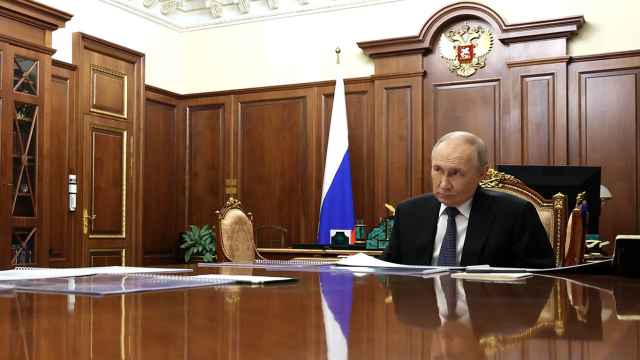The coronavirus pandemic has pushed the number of overdue loans in Russia to a record high, new research has found.
More than 12.5 million loans issued by Russian banks and credit providers are currently non-performing — meaning the borrower is more than 90 days behind on repayments — the National Association of Professional Collection Agencies and credit bureau Equifax said Thursday.
They forecast that another million borrowers could fall behind by the end of the year, which would mean one in every six loans would be overdue.
“The pandemic has had an extremely negative impact on the quality of loan portfolios,” the organizations said in a new report. The share of overdue loans has grown 12.5% compared to last year. Annexed Crimea saw the fastest jump in non-performing loans among the regions studied — its share has doubled since the start of the year.
Around six trillion rubles ($77 billion) of loans — almost 10% of all outstanding corporate and retail loans — have been restructured since the start of the coronavirus pandemic under a government-backed scheme to encourage banks to revise their terms and conditions for hard-pressed debtors. At the same time, Russia’s Central Bank relaxed the requirements on banks to increase their own cash reserves to cover potential losses — fearful that instructing them to do so would cause a drop in liquidity across the financial sector.
Instead, the overall loan book of Russian banks’ increased by 9.8% in the first eight months of the year, data from ratings agency Fitch shows.
Analysts say Russia’s banking system is in a much better position than during previous economic crises, thanks to the Central Bank’s massive clean-up of the sector under governor Elvira Nabiullina following the 2014-15 crisis.
The National Ratings Agency estimated the sector will only need to keep around 40% of its $75 billion in capital buffers on the balance sheet into 2021 in order to meet minimum regulatory requirements. Current reserves almost match the entire value of loans restructured throughout the crisis, meaning covering even a significant increase in bad debts “will not have a negative impact on the stability of the banking system,” it said.
However, it pointed out that individual banks may not be so well protected. “Capital in the banking sector is unevenly distributed. Therefore, the financial stability of individual credit institutions during 2021-2022 may come under pressure.”
State-owned Sberbank, for instance, accounts for 35% of all Russian loans, but holds almost 47% of the sector’s tier 1 capital — a measurement of a bank’s capital reserves and financial strength.
Before the coronavirus pandemic, the rapid acceleration of loans — particularly unsecured payday loans — across the country had raised concerns. Industry players insisted the acceleration was a sign of Russia’s maturing financial sector, stunted from 70 years of communism and banking crises in the 1990s, adding that while the growth appeared fast, absolute levels of debt were still low by international standards.
Others raised fears of a bubble, pointing to Russia’s low levels of financial literacy, predatory collection practices and concerns that in an economic downturn both borrowers and banks could be hit hard.
The crisis has slowed the growth in most forms of credit — with approval rates for credit cards and unsecured loans dropping significantly. However, a state-supported program which caps interest rates on mortgages for new apartments and homes has proved hugely popular, with banks reporting record lending figures over the summer.
Authorities are considering whether to extend the program until the end of next year, as the Central Bank has said it is keeping a close eye on the initiative for signs of a potential housing market bubble or rapid acceleration in mortgage debt.
A Message from The Moscow Times:
Dear readers,
We are facing unprecedented challenges. Russia's Prosecutor General's Office has designated The Moscow Times as an "undesirable" organization, criminalizing our work and putting our staff at risk of prosecution. This follows our earlier unjust labeling as a "foreign agent."
These actions are direct attempts to silence independent journalism in Russia. The authorities claim our work "discredits the decisions of the Russian leadership." We see things differently: we strive to provide accurate, unbiased reporting on Russia.
We, the journalists of The Moscow Times, refuse to be silenced. But to continue our work, we need your help.
Your support, no matter how small, makes a world of difference. If you can, please support us monthly starting from just $2. It's quick to set up, and every contribution makes a significant impact.
By supporting The Moscow Times, you're defending open, independent journalism in the face of repression. Thank you for standing with us.
Remind me later.






